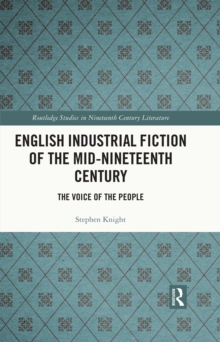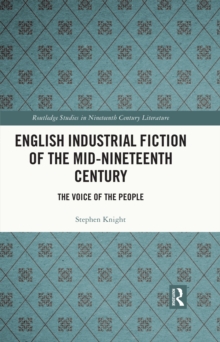
Economies of Desire at the Victorian Fin de Siecle : Libidinal Lives EPUB
Edited by Jane Ford, Kim Edwards Keates, Patricia Pulham
Part of the Routledge Studies in Nineteenth Century Literature series
EPUB
Description
This volume marks the first sustained study to interrogate how and why issues of sexuality, desire, and economic processes intersect in the literature and culture of the Victorian fin de siecle. At the end of the nineteenth-century, the move towards new models of economic thought marked the transition from a marketplace centred around the fulfilment of 'needs' to one ministering to anything that might, potentially, be desired. This collection considers how the literature of the period meditates on the interaction between economy and desire, doing so with particular reference to the themes of fetishism, homoeroticism, the literary marketplace, social hierarchy, and consumer culture. Drawing on theoretical and conceptual approaches including queer theory, feminist theory, and gift theory, contributors offer original analyses of work by canonical and lesser-known writers, including Oscar Wilde, A.E. Housman, Baron Corvo, Vernon Lee, Michael Field, and Lucas Malet. The collection builds on recent critical developments in fin-de-siecle literature (including major interventions in the areas of Decadence, sexuality, and gender studies) and asks, for instance, how did late nineteenth-century writing schematise the libidinal and somatic dimensions of economic exchange? How might we define the relationship between eroticism and the formal economies of literary production/performance? And what relation exists between advertising/consumer culture and (dissident) sexuality in fin-de-siecle literary discourses? This book marks an important contribution to 19th-Century and Victorian literary studies, and enhances the field of fin-de-siecle studies more generally.
Information
-
Download - Immediately Available
- Format:EPUB
- Pages:226 pages
- Publisher:Taylor & Francis
- Publication Date:14/10/2015
- Category:
- ISBN:9781317576587
Information
-
Download - Immediately Available
- Format:EPUB
- Pages:226 pages
- Publisher:Taylor & Francis
- Publication Date:14/10/2015
- Category:
- ISBN:9781317576587










